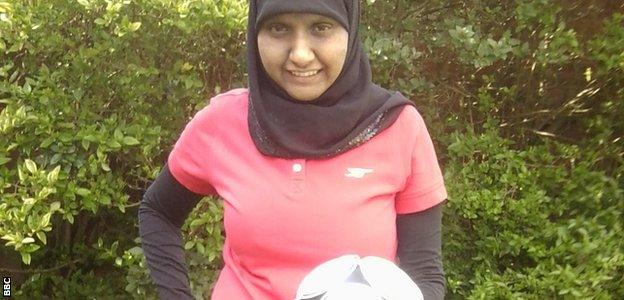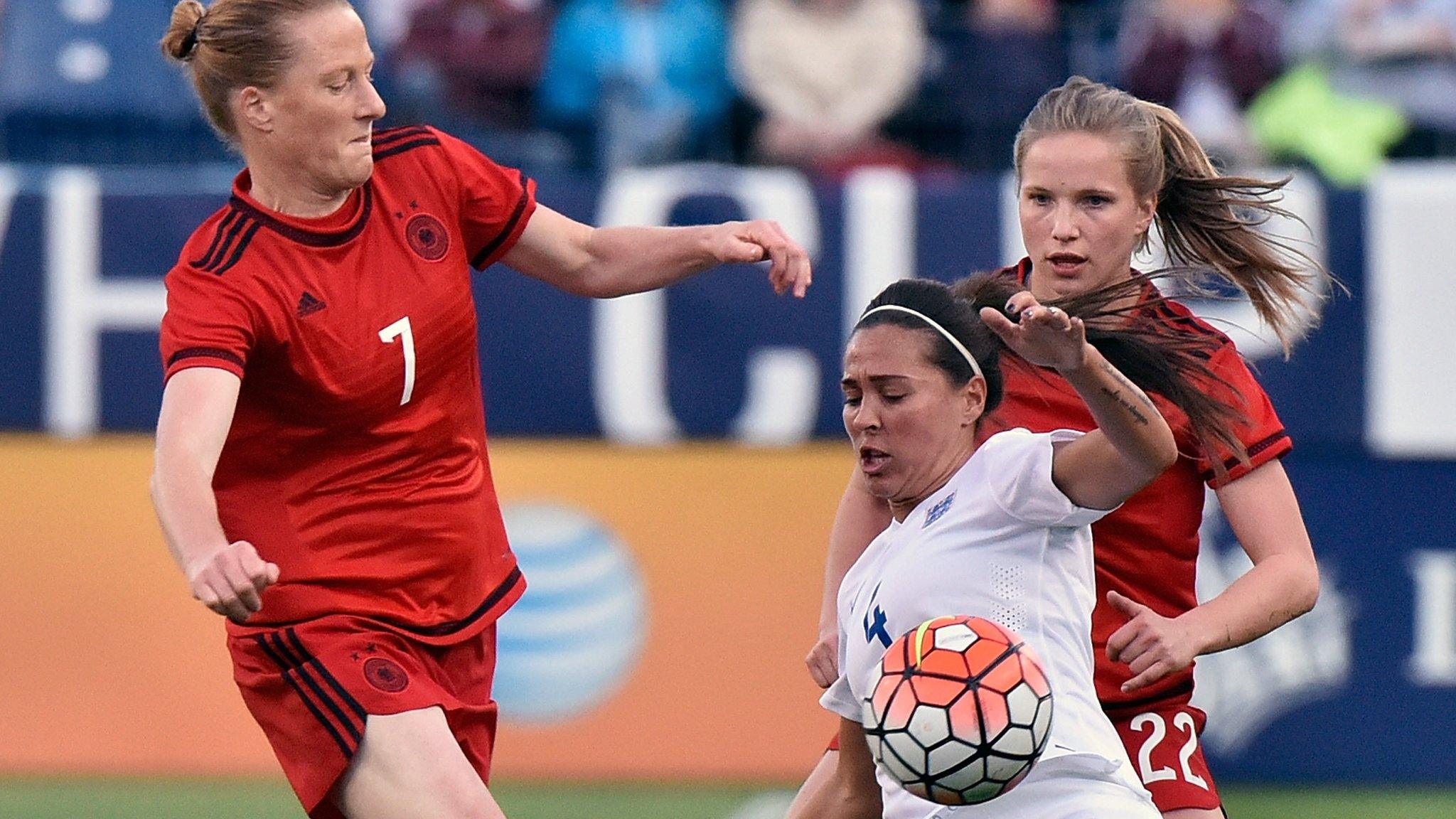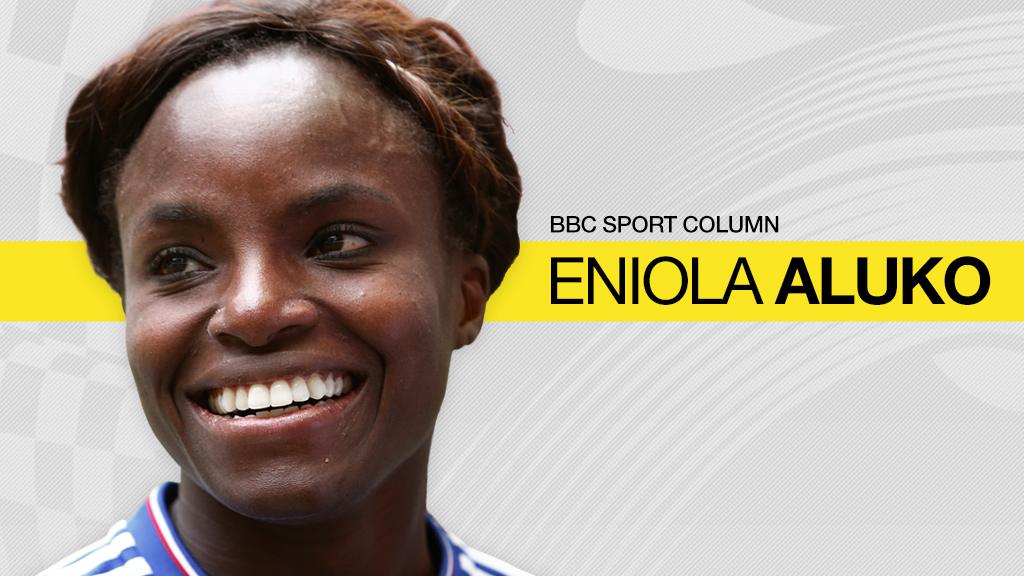Annie Zaidi: Football coach faced racism, sexism & Islamophobia
- Published
Annie Zaidi talks about the challenge of engaging young girls in football
Annie Zaidi is a female football coach of South Asian heritage. She has passed her FA Level 2 badge and is working towards her Uefa B coaching licence.
With the support of Queens Park Rangers director of football Les Ferdinand and technical director Chris Ramsey, she is involved at the Championship club's academy, and is also the head coach for Leicester City Under-11s girls' team.
In November, 32-year-old Zaidi received the Helen Rollason Award for Inspiration at the Sportswomen of the Year Awards.
On Monday, she is speaking at the Fifa Women's Football and Leadership Conference., external
An Arsenal fan, her dream is one day to become Gunners manager.
In her own words, she describes why football is her passion and the barriers she has had to overcome.
Love of the game
I've always been interested in football. From the age of five, I was playing football in the back garden with my brothers. When I was growing up, there wasn't the opportunity for a girl like me to play football for a team or a club. Being from a South Asian background, me playing football was seen as taboo, especially within the Asian community.
Muslim girls were encouraged to play sports but not alongside boys and it was preferred that we played indoor sports like netball or badminton which took place in enclosed environments. When I played football, I wore shorts - even that was frowned upon and raised eyebrows. I played alongside other girls at school but I enjoyed playing the game with boys.

There was a lack of opportunity and so much negativity, I gave up playing at the age of 14. I was heartbroken and angry at the same time. I felt like an outsider within my own community. I never lost my passion for the game though - I would still take my ball down the park for a kickabout and I always watched football on TV. But it was seven years before I found my way back into the game and started coaching.
Fighting to succeed
I'm always coming up against barriers, I don't fit the image of what people think a coach should be - I'm a woman from a South Asian background, who wears a headscarf. While coaching a Sunday League men's team early on in my career, an opposition manager made sexist remarks towards me. My team won but at the end of the game, he walked past me and shook the hand of a male parent rather than mine. I went back to my car and cried.
Another time I was coaching a team of South Asian young men when a Muslim priest walked past and shouted that I was an embarrassment to the Muslim faith and a bad role model.
The racist, sexist and Islamophobic comments I have received in my career have at times tempted me to quit. But I'm very determined. I have a responsibility to inspire, empower and show girls everywhere that females can have a role within the professional game. If I am successful, doors will open for others without them having to go through the same racism and sexism I have experienced.
Female coaches in the game
Just because I'm a woman I don't see why I have to only coach within the women's game. I don't like being pigeon-holed. The rebellious side of me is determined to coach within the professional men's game. It's down to individual clubs giving female coaches opportunities, not as token gestures, but based on their potential to do the job.
Raffaele Long, the technical director at Leicester City Girls' Centre of Excellence, gave me a chance. I've been there for two seasons now. I met the former Queens Park Rangers manager Chris Ramsey, who's now their technical director, at a Sporting Equals event. He invited me down to the club and things progressed from there.
Like this? Read these... |
|---|
I go down to the club once a week to either deliver or observe a training session. I'm regarded there as a coach, just like any of the others at the club. Chris and director of football Les Ferdinand are constantly supporting me.
Football still needs to do a lot to increase the number of women coaches, in both the men's and women's game. Women in any role within the game - be it coaches, medics, or referees - are still few and far between. They are not easily visible.
Aims and ambitions
I hope to carry on working with QPR and be mentored by great coaches and with their help, achieve my Uefa B coaching badge and start applying for a full-time coaching role at a professional men's club.
Winning the Helen Rollason Award gave me an even bigger push and sense of motivation to keep focused. It gave me the opportunity to show all those people who said I shouldn't and couldn't make it, that I have done and am continuing my journey until I achieve my goal.
I'm just a crazy football fan working extremely hard to become a top coach within the professional men's game.
Annie Zaidi was speaking to BBC Sport's Cathy Stone
- Published7 March 2016

- Published7 June 2019

- Published3 March 2016

- Published20 June 2016
